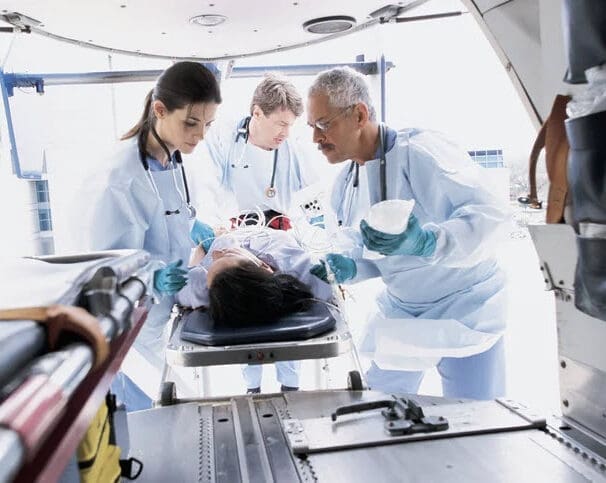HealthProviders DB is a comprehensive database of healthcare providers, including a complete directory of all Patient Transport Registered Respiratory Therapists.
Registered Respiratory Therapist Healthcare Taxonomy Code 2279P4000X
As of today, the following are the total number of Patient Transport Registered Respiratory Therapists nationally, in your State, and near your location.
Select a State below to view the list by State. Additionally, you can narrow the list by city, among other options, from the Filter Panel, which you can open by clicking the vertical ellipses ⋮ in the upper right corner of the app.
Alaska – Alabama – Armed Forces Pacific – Arkansas – American Samoa – Arizona – California – Colorado – Connecticut – District of Columbia – Delaware – Florida – Federated States of Micronesia – Georgia – Guam – Hawaii – Iowa – Idaho – Illinois – Indiana – Kansas – Kentucky – Louisiana – Massachusetts – Maryland – Maine – Marshall Islands – Michigan – Minnesota – Missouri – Northern Mariana Islands – Mississippi – Montana – North Carolina – North Dakota – Nebraska – New Hampshire – New Jersey – New Mexico – Nevada – New York – Ohio – Oklahoma – Oregon – Pennsylvania – Puerto Rico – Palau – Rhode Island – South Carolina – South Dakota – Tennessee – Texas – Utah – Virginia – Virgin Islands – Vermont – Washington – Wisconsin – West Virginia – Wyoming
Medicare
The following are the total number of Patient Transport Registered Respiratory Therapists who accept Medicare in your State, the number who have opted out of Medicare, and the total number excluded from participation in Medicare nationwide.
The diagram below shows all the Patient Transport Registered Respiratory Therapists across the country, represented by blue bubbles. The larger the bubble, the greater the concentration of providers in that area. Red bubbles represent Medicare-excluded providers, with the larger bubbles indicating a higher percentage of excluded providers in that region. You can change the bubble size to be based on exclusions from the Size menu.
What do Patient Transport Registered Respiratory Therapists do?
Patient Transport Registered Respiratory Therapists (RTs) provide advanced respiratory care and ventilation management for critically ill or injured patients during ground or air transport.
Their duties include managing mechanical ventilators, delivering oxygen therapy, assessing blood gases, and adapting to critical care situations in a moving environment, ensuring a continuum of care from one facility to another.
What they do
Ventilator Management: Set up, monitor, and adjust mechanical ventilators to ensure patients receive the correct amount of oxygen at the appropriate rate during transport.
Therapeutic Interventions: Administer oxygen therapy and perform other respiratory interventions, including non-invasive ventilation and management of Extracorporeal Membrane Oxygenation (ECMO) support.
Patient Assessment: Continuously assess patient conditions, including interpreting blood gases and other lab values, to adapt care as needed.
Emergency Response: Respond promptly to emergencies, serving as a vital member of the transport team.
Collaboration: Work closely with nurses, EMTs, and medical control physicians to provide coordinated, high-level care.
Equipment Expertise: Skillfully adapt to the unique limitations of transport-specific equipment and environments.
Why They Are Essential
Adaptability: They demonstrate critical thinking skills and adaptability to work in a dynamic, non-traditional environment, ensuring care continues seamlessly from one medical facility to another.
Continuum of Care: Transport RTs provide specialized care that brings the intensive care unit (ICU) to the patient during transport.
Advanced Critical Care: Their advanced critical care experience and skills enable them to manage volatile patients who require complex respiratory support during transport.

